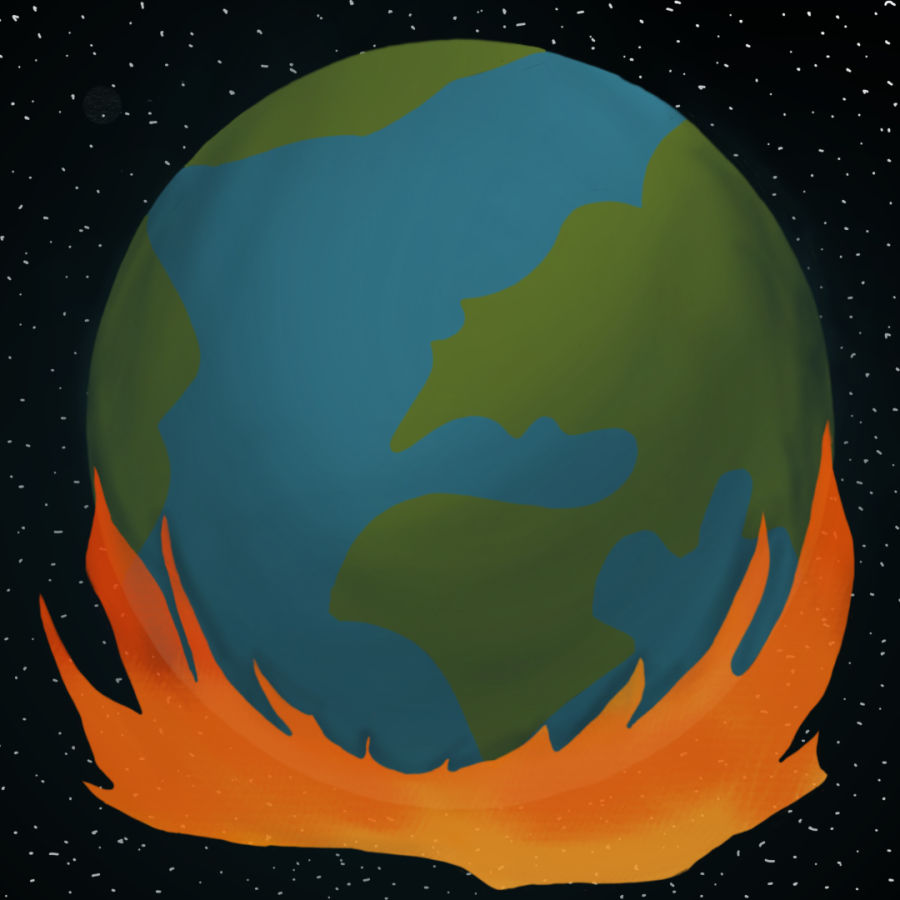Forest Fires & Global Warming
November 22, 2022
The recent forest fires and dangerous air quality have been taking a toll on everyone. Whether it is an event being cancelled, reoccurring headaches, feeling like you cannot breathe, or even hospitalization, it is no secret that these fires are frustrating and devastating.
Junior Neha Muramalla shares, “I saw some news about how firefighters were really overwhelmed.” First responders, especially firefighters, have been working especially hard to put out fires and keep them out this fire season. Freshman Siyana Jiwani says, “I do not know any first responders, but I can guess being out there all the time cannot be good for you.” It is important to remember that without first responders’ efforts, these fires would have been much worse, and communities would be at risk of house fires.
The unseasonably warm temperatures, lack of rain, and increased wind have been making fires worse across the west coast. The strong gusts of wind could easily take embers from a campfire that was not properly put out to an acres-wide forest fire overnight. According to Fox News, Gage Bailey, a firefighter and a U.S. Forest Service forestry technician, says, “I’ve definitely seen the fire season go later in the year. Being in October and fighting fires, usually it was having to go to California to see them. Now it’s right in our backyard.” The late fire season has led many to attribute the fires to global warming. However, there has been some debate about what really caused the majority of these fires. Junior Marcus Hibpshman says, “I can see how these fires are affected by global warming. Summer heat tends to last much longer into fall, leading to more fires. This problem only increases each year as it seems.”
A frustrating result of the wildfires was lingering smoke. The smoke was the cause of the air quality being so unhealthy, with Seattle even reaching the top of the Worst Air Quality Ranking list on Oct. 20. The poor air quality resulted in headaches, shortness of breath, and more serious issues for people with health complications such as asthma or other breathing conditions. This is one of the things that makes firefighting and being a first responder so dangerous. Muramalla shared her experience with side effects from the smoke: “I know people who had serious headaches and breathing issues from going outside. My dad went outside for 15 minutes, and he had breathing issues and came back with a headache.” She also shared how the poor air quality affected her, saying, “The Homecoming football game got cancelled. I did not go out that weekend. I had to just stay inside.” Most of these side effects are caused by smoke particles entering the blood stream through the nose and mouth. Since the AQI was over 200, outdoor events at IHS had to be cancelled and it was recommended that people were not outside for long periods of time.
Many popular news sources claim that fires were caused by global warming, but more scientific sources say otherwise. While the fires may be worsening global warming, it is unlikely that global warming is the definite reason for these fires. Cliff Mass, a professor of Atmospheric Sciences at the University of Washington and author of Cliff Mass Weather Blog, says, “In contrast to the claims of the Seattle Times and some activist types, there is no reason to expect future increases in the size or frequencies of westside wildfires. There is no observed upward trend in wildfire acreage west of the Cascade crest. Global warming should weaken strong easterly flow, the key meteorological factor associated with autumn westside wildfires.” This heavily contrasts with what many mainstream news sources are saying but is likely more accurate considering Mass’s background and knowledge. There was also likely more than one cause of these fires. Most of the larger fires such as the Boulder Creek fire were determined to be caused by humans, then spread by wind and the lack of moisture. To prevent more fires from starting, thoroughly putting out campfires is a good action to take. If you camp regularly, you should be aware of these rules. Campfires should be far away from flammable things such as tents, vehicles etc. and in open spaces. Campfires should never be near dry grass. To extinguish them, you should douse them in water until the remnants are cold or bury the remaining embers in wet soil/sand. By taking these precautions, we can help prevent fires in the future and be aware of how we are affecting the environment.




